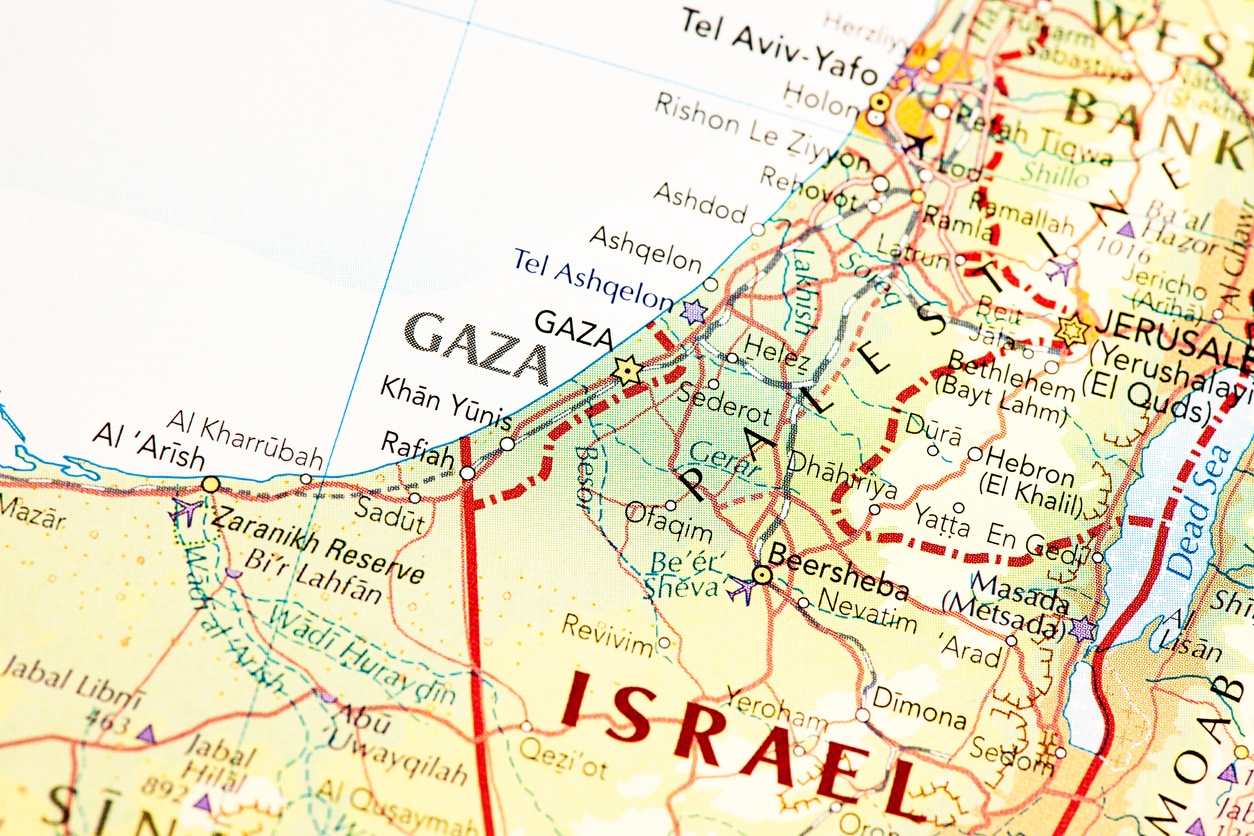A harrowing border experience proves PR’s power
It’s a language everyone can understand.

Eitan Goldstein is the former communications manager for Propel PRM, and specializes in PR for tech companies. He is based in Haifa, Israel.
Communicators always say that one of the biggest benefits PR brings to organizations is credibility with audiences. This is usually framed as promoting a particular CEO or organization as a thought leader in their industry, making sure that current and future clients have trust in the organization, or showing that an organization is a safe place for investors to put their money.
However, what we don’t realize is how this credibility impacts people on a personal level.
I live in Israel, and in October I was scheduled to fly to a friend’s wedding in Abu Dhabi. However, the airline I was taking to the United Arab Emirates canceled my flight due to rocket attacks on the airport here. I decided to cross via land into a neighboring Arab country and fly from there to the UAE (I would like to visit this country again so I’ll leave out the name).
I wasn’t worried about going to this country as I speak Arabic and had lived there before. Many of my Israeli-Arab friends had taken similar routes using their Israeli passports, so I figured I would be fine.
However, once the border agent in the Arab country saw my very Jewish name in my Israeli passport, my problems began. He asked his colleague in Arabic, “what he should do with this Jew.” His colleague, after he got over his own shock at me trying to enter the country, said “don’t let him in. Jews aren’t supposed to be here.”
This commotion caused the head of the border crossing to come over to investigate. After the situation was explained to him, the head of the crossing asked me my nationality in broken English. I told him I’m American-Israeli and handed him my American passport as well. He asked me what my real nationality was, to which I replied I didn’t understand what he meant. He then asked, “you are Jew?” I said yes.
The official explained to me that Jews were only allowed into the country on organized trips and that I needed to return to Israel. However, having lived in this Arab country, I knew this wasn’t true, and I refused to leave.
Still holding my passports, the head of the crossing then took me into a back room where I was seated in front of an intelligence officer who began to interrogate me. Using Google Translate, he asked me who I was, where I live, my phone number, what I was doing in the country, where I was going, and why. After answering his questions truthfully and showing my plane ticket, the officer asked me what I do for a living.
“I’m in PR” I said.
“What’s PR?” he replied.
Given that this is a country where the press isn’t totally free, the idea of PR was quite foreign to him. And despite explaining what PR is and showing him my LinkedIn, he still didn’t understand. He believed I was a journalist, and asked if I write about politics, if I’m there to interview anyone, and if so, who and where? I reiterated that I’m not a journalist, rather someone who gives them tips and story ideas. After two hours of the interrogation going in circles, he still didn’t understand. I could tell he was becoming increasingly frustrated.
I eventually remembered that a while back I had gotten the company I work for a mention in a major publication in the country, and that the article was written in Arabic. As a hail Mary, I pulled up the article, and explained that I’d been in touch with the journalist and pitched him to include the company in one of his articles. The intelligence officer read the article in its entirety.
“I get it now. You’re free to go,” he finally said. “But,” he added, “you’re only allowed to go to the airport – no stopping. You will go with one of our people.”
And within minutes, I was in a car on my way to the airport.
And yet, I knew that without that article I would have been turned away, or worse. The experience also made me realize that I’m not the only person who’s been detained at a port of entry and had to use every means available to prove who I am and that I don’t pose a threat to the country I’m entering.
PR professionals don’t usually consider this aspect when it comes to credibility. Yet sometimes, by getting the organizations we represent mentioned in trusted publications, our results can be the difference between someone’s unjust detention and freedom.






